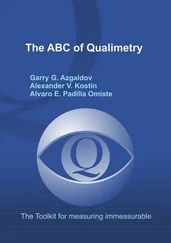“What was the state you found them in?” asked the prosecutor.
“All the children were in excellent condition. Indeed they looked quite happy. Many of them owed Salvator their very lives. The Indians believed in him and brought him their children from far afield.”
A sigh was heard in the hushed hall.
The prosecutor began to fidget. Now that he had got his cue from the bishop the expert’s warm words jarred upon his ears.
“Are you going to suggest that the operations the accused carried out served any justifiable purpose?” he asked the expert.
But the presiding judge, a stem-faced silver-haired man, fearing lest the expert answer in the alternative, hastened to interpose.
“The Court is not interested in the expert’s personal opinions on scientific matters. Please proceed, Professor. What were your findings as to the young man Ichthyander of the Araucanian tribe?”
“We found that Ms body was covered with man-made scales,” Professor Stein continued, “of some unknown material, easy to bend but hard to pierce. We are still awaiting the results of its analysis. When swimming Ichthyander used a pair of goggles fitted with special flint glass with an index of refraction near two which enabled him to see better underwater. When we removed the scales we detected a round hole about four inches in diameter under each shoulder-blade covered with five thin strips, the whole looking similar to a shark’s gills.”
A muffled exclamation of surprise was heard in the hall.
“Yes,” the expert continued, “surprising as it must seem, Ichthyander possesses both human lungs and a shark’s gills. That is why he can live both on land and in water.”
“An amphibian?” the prosecutor said ironically.
“Yes, in fact a human amphibian.”
“But how could Ichthyander come to have a shark’s gills?” asked the presiding judge.
The expert spread his arms abroad.
“That is a puzzle to which only Professor Salvator holds the answer,” he said. “I shall try, however, to sum up our opinion for you. According to the bioge-netic law of Haeckel the organism in its development is to a great extent an epitome of the form-modifications undergone by the successive ancestors of the species in the course of their historic evolution. So it can be safely said that man’s distant forebears once breathed with their gills.”
The prosecutor half-rose in his seat to protest but was motioned back by the presiding judge.
“Here’s some embryology to support it. By the twentieth day an embryonic skull shows a set of four parallel ridges, the so-called visceral arches. But later the human foetus’s would-be gills undergo a transformation: the first visceral arch develops into the acoustic duct with the ossicles and the Eustachian tube, its lower part turning into the lower jaw; the second arch develops into the hyoid bone; the third into the body and two processes of the thyroid cartilage. This is the normal development and we do not consider that Professor Salvator could have arrested it in the case of Ichthyander. There are on record cases of even adults having an unclosed gill-cleft on the throat directly under the lower jaw, the so-called branchial fistula, but there can be no question of their breathing through them. Had there been, however, any interference with the normal development, the gills would have developed at the expense of the organ of hearing and other functions, making Ichthyander into a monster half-fish. But Ichthyander is a normally developed young man with good hearing, a well-pronounced lower jaw and sound lungs, and besides he has full-grown gills. How Ichthyander’s gills and lungs function, what their interaction is, if any, whether his gills get their water via the mouth and lungs or through the two small orifices we discovered on his body directly above each gill-opening — we do not know. Nor could we answer these questions without an autopsy. This is, I repeat again, a puzzle for the solution of which we have to refer to Professor Salvator. Only Professor Salvator can explain to us the origin of the dog-like jaguars and other such animals as well as of the amphibious monkeys, Ichthyander’s doubles.”
“What is your general conclusion?” asked the presiding judge.
The expert, himself a well-known surgeon, said simply:
“Frankly speaking I can’t make head or tail of it. I can only say that what Professor Salvator did, nobody but a man of genius could do. But it does look as if Professor Salvator on reaching his consummate degree of skill, decided that he could take humans or animals to pieces and put them together in any manner or arrangement he thought best. And though he has been doing this, and with brilliance, nonetheless his daring and scope border on what I’m forced to say looks like insanity.”
At this Salvator gave a little contemptuous smile. He had no idea that the experts had resolved to alleviate his lot by pleading his insanity.
“I do not want to produce the impression that such is our considered opinion,” the speaker said, catching sight of Salvator’s smile, “but we do suggest the accused be submitted to expert medical examination.”
“The Court will consider your insanity plea in due time,” said the presiding judge. “Professor Salvator, do you intend to give the Court any explanations of the questions raised by the experts and the prosecutor?”
“Yes,” Salvator said, “I do, and I also intend to make it my last word.”
Salvator had risen in his seat and was now running his eye over the hall as if trying to locate somebody. In the front row he saw the bishop and let his sweeping eye stop for a moment, while a faint smile skimmed his lips, before running it farther back, picking out, as he did so, Baltasar, Cristo and Zurita. Then he started to scan the audience again, more careful this time.
“I can’t see my victim in Court,” he said finally.
“I’m your victim! “ Baltasar shouted all of a sudden, jerking up from his seat and resuming it only after a sharp tug administered by Cristo.
“What victim do you mean?” said the presiding judge. “If you mean the animals you have maimed the Court has decided against exhibiting them here. As far as the human amphibian is concerned, he’s in the Court building.”
“I mean God,” Salvator said in an earnest, quiet voice.
On hearing that the presiding judge fell back in his chair in consternation. Has Salvator suddenly gone mad, he thought, or is he perhaps feigning insanity to escape prison?
“Whatever do you mean?” he asked.
“I expect that should be clear to the Court,” said Salvator. “Who’s the principal and only victim in the present case? Obviously God. According to the prosecution my work has undermined His authority by making what are alleged to be inroads on His domain. He likes what He created, then up comes a doctor and says, “This is bad; that ought to be altered,’ and starts altering what God did according to his own lights.”
“This is blasphemy! I want the exact words of the accused put on record,” the prosecutor interposed with the air of a man whose sacred feelings have been violated.
Salvator shrugged his shoulders.
“I’m only summing up what it says in the indictment. Isn’t that just what it boils down to? At first I was only charged with carrying out vivisections and causing disfigurement. Now another charge is being lined up against me, that of sacrilege. What wind has blown that in? Not from the direction of the Cathedral, by any chance?” and Salvator looked straight at the bishop.
“You have only yourselves to blame for having built up a case where prosecution relies on God as a plaintiff while Charles Darwin shares the prisoner’s dock with me. Perhaps I’m wounding the feelings of some people present here, but I will say once again that the organisms of animals and even of man are not perfect and can, indeed, do with improvement. I expect the bishop Juan de Garcilaso here in Court will bear me out on this.”
Читать дальше










